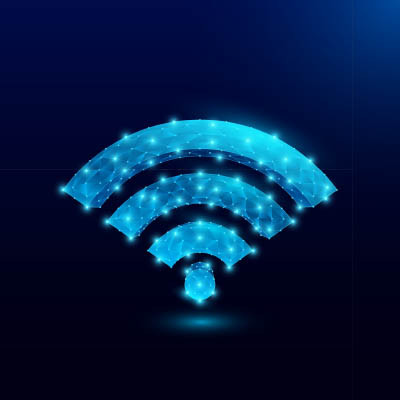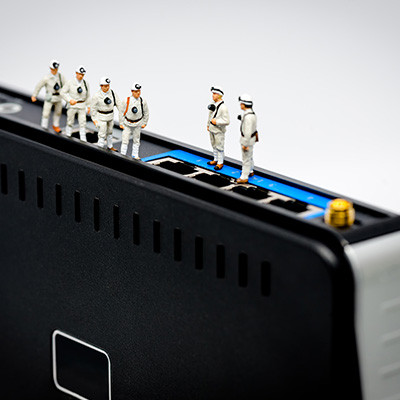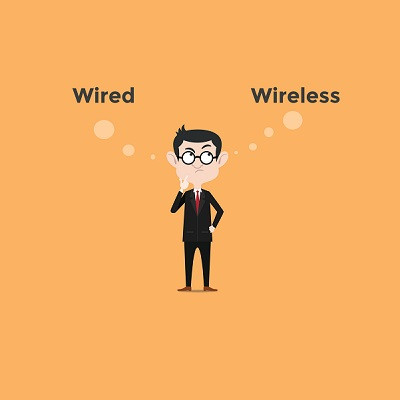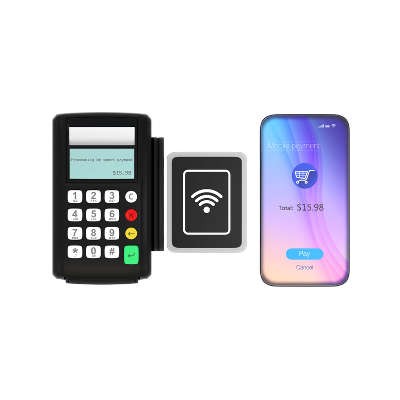The Connection, Inc Blog
Make no mistake about it, connectivity to the Internet is paramount for any business. A surefire way to gauge this importance is to observe people's reactions when they are informed that the Wi-Fi will be down for a few hours. In such a context, businesses face a crucial decision: should they opt for wired connections or embrace robust Wi-Fi? To make an informed choice, it's essential to understand the benefits associated with both options.
Few technologies in our time have been as anticipated as the fifth generation of wireless communications. 5G, as it is colloquially known, is promising to bring a whole new level of automation to society and business. One place 5G is sure to make big waves is with the Internet of Things, the billions of smart devices and services that are increasingly being leaned on as a new economy emerges. Today, we will take a brief look at 5G’s current state, its capabilities, and what it means for the future of the Internet of Things.
There are times when people take their technology for granted. One of the most under-the-radar, yet still critical parts of a business’ technology infrastructure is the networking equipment. By this we mean the hardware that connects your business to the Internet and to your network. We are talking cables, switches, and routers. This month, we will take a look at typical office networking found in 2020 and the technologies that are primed to replace them.
Businesses’ data needs are rapidly changing. Today, data security is a pressing issue. Unfortunately, the amount of dangerous threats are expanding as well and it is important to ensure that any technology moves you make don’t end up putting your business in harm’s way. This month, we’ll talk about the pros and cons of wiring up your computer network.
Today’s businesses are looking to expand their cashless payment options to include those made through mobile devices. Doing so, can provide your organization with a variety of benefits.
This development in cashless payments has led customers to expect certain conveniences from businesses. For example, the frustration people face when they go to use an ATM for some spare cash and the card reader doesn’t work. Because of situations like these customers also expect that businesses will be able to adapt to changes in cashless payment technologies, using smartphones, wearables, and other devices. It's predicted that by the end of 2017, over $60 billion will be made in mobile payments; not a sales figure to scoff at.
In order to take advantage of this incredible opportunity, businesses want to implement solutions that allow their clients to manage their payments in as many different forms as possible; particularly the use of cashless payment systems. By keeping the amount of physical cash moving through your company to a minimum, you’ll be able to cut down on major problems involved with it.
Most notable is that you won’t have to deal with paper ledgers that could easily be falsified or forgotten about, throwing off your records and making them unreliable. Digital payment systems make it easy to keep records of transactions, and in general make keeping track of funds much more efficient.
If your business relies on handling cash, perhaps it’s time to consider making the switch to a more versatile payment system. The Connection can help your business analyze all of the options available to you, as well as the best path to get there. To learn more, reach out to us at (732) 291-5938.
Wireless Internet access for a user’s devices isn’t just a luxury these days--it’s expected. If the Wi-Fi drops out for any reason at all, chaos strikes, rendering any ability to stream content or access the Internet a moot point. This is particularly the case for businesses that have technology solutions reliant on wireless access. How can you make sure your wireless network is as strong and reliable as possible?
A More Flexible Workplace
Take a moment to reflect on the devices used by your business. If it’s like more modern offices, you have employees using mobile devices or laptops more often than you see them using their desktop workstations. Employees simply like to have their options open in the office, and a strong wireless connection helps to make this possible. If you give your organization’s employees the ability to get work done on their own terms, you can empower them to be more productive with their time in the workplace.
Uptime is Maximized
Losing an Internet signal isn’t just annoying--it can be a major detriment to your organization’s success. Any situation when your business isn’t functioning as it’s supposed to be can be considered downtime, and it can be a major setback for any organization hoping to improve their bottom line. Think about it this way: if your business’ employees can’t work because the Internet is down, and they are still in the office waiting for it to return, then you’re paying them to do nothing--not exactly the most effective use of your operational funds. Ensuring a strong connection can reduce this risk considerably.
Distance from the Router Won’t Matter (As Much)
Sometimes an office is so big that it needs multiple wireless routers to ensure all employees have access to the network. Therefore, a solid connection can go a long way toward minimizing the influence that your office’s setup has on your employees’ Internet connection. There are issues that can get in the way and cause interference, but if your connection is strong thanks to a solid wireless router, you won’t have to worry as much about it.
To find out how The Connection can help your business maintain a steady wireless connection, reach out to us at (732) 291-5938.
You likely use several wireless devices and enjoy their many advantages, like not having to be wired to your desk. Yet, it’s unlikely that you’ve transitioned your entire office to wireless technology. Thanks to the advancements and affordability of wireless technology, having an office that’s completely wireless may be entirely within the realm of possibility.
 Business owners are taking great strides toward freeing themselves from the confines of the office environment once and for all. This means integrating wireless technology into every aspect of the way you handle operations. However, there are still some uses for wired technology that wireless cannot facilitate.
Business owners are taking great strides toward freeing themselves from the confines of the office environment once and for all. This means integrating wireless technology into every aspect of the way you handle operations. However, there are still some uses for wired technology that wireless cannot facilitate.
 It seems like just yesterday that the world adopted 4G as the accepted model of wireless technology communication, but it’s still important to look toward the future and push for greater heights. Wireless technology has permeated society to the point where it’s steeped with smartphones and other mobile devices. So, what’s next in the wireless game?
It seems like just yesterday that the world adopted 4G as the accepted model of wireless technology communication, but it’s still important to look toward the future and push for greater heights. Wireless technology has permeated society to the point where it’s steeped with smartphones and other mobile devices. So, what’s next in the wireless game?
News & Updates
Understanding IT
Get the Knowledge You Need to Make IT Decisions
Technology is constantly evolving, and keeping up can feel overwhelming. Whether you want to understand cybersecurity threats, explore automation, or learn how regulations like PCI DSS impact your business, we’ve made it easy to access clear, straightforward insights on key IT topics.
Contact Us
Learn more about what The Connection can do for your business.
The Connection
51 Village CT
Hazlet, New Jersey 07730








